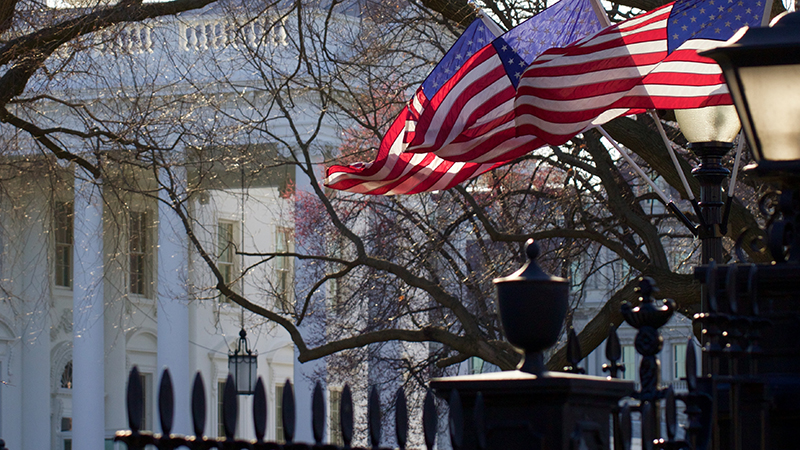
In his first public event since swearing in as national cyber director (NCD) late last year, Harry Coker this week announced several initiatives to “aggressively” fill vacant cyber positions within the Federal government, including conducting a series of cyber hiring sprints.
During a Jan. 11 event at the Community College of Baltimore County (CCBC), the new NCD also announced 18 commitments from both the Federal government and the private sector that will directly benefit the Baltimore community’s cyber workforce and education.
“We’ve been engaging with communities across the country to spur development of ecosystems of workers, educators, employers, and others,” Coker said during his speech. “We work together to expand access and increase diverse participation in cyber education and training.”
“Last year, we had more than half a million vacant cyber jobs nationwide – 31,000 of which are in Maryland and more than half of those – 16,000 – are here in the Baltimore region,” he said. “Our first challenge is making sure we have more people trained for these careers – careers that are positioned to grow in importance well into the future.”
He added, “To secure our nation’s cyberspace, we need to make cyber jobs more available and attainable for groups that traditionally haven’t been recruited.”
The White House released the first-of-its-kind National Cyber Workforce and Education Strategy in July under the leadership of former Acting NCD Kemba Walden, who stepped down from the post in November 2023. Coker will now lead the way in implementing the document.
Coker highlighted the strategy, noting that ensuring the nation has enough cyber professionals will require long-term, sustained efforts from both the public and private sectors.
The NCD said his team is “aggressively seeking to fill vacant cyber positions across the Federal government.”
Coker announced that this year, the Office of the National Cyber Director (ONCD) – alongside several Federal departments and agencies – will conduct a series of cyber hiring sprints to fill vacancies across the government.
He also noted that ONCD is working with the Office of Management and Budget to reduce unnecessary hiring barriers, like requiring four-year degrees, which are leaving out “untold numbers of talented professionals.”
During his speech at CCBC, Coker also announced 18 new commitments from local and national organizations that will directly benefit the Baltimore community.
The Department of Transportation (DoT) committed to increasing its paid internship slots this fiscal year from three to 12 and will continue to convert a set of interns into full time employees. The DoT Pathways Internship Program provides both on-site and virtual opportunities for training and mentorship that prepares participants for lifetime careers in the IT industry.
The National Institute for Standards and Technology (NIST) has committed to identify over 200 ambassadors across the nation to its National Initiative for Cybersecurity Education (NICE) Ambassador Program.
GDIT is committed to training the cyber workforce of the future to support the missions of the U.S. defense, intelligence, and civilian government agencies. Specifically, in 2024, GDIT will both facilitate cybersecurity education for 20,000 employees and upskill over 1,000 employees with cyber certifications and learning courses.
Okta, an identity and access management company, has committed to investing in a $1.6 million philanthropic fund for organizations that are creating inclusive pathways to technology careers for underrepresented communities. Okta also announced it is also providing 5,000 educational grants to professionals not currently employed looking to make a career transition to cybersecurity by growing their skills. These grants will focus on military spouses, veterans, and tech workers.
These cyber commitments build on the Biden-Harris administration’s May 2023 announcement of Baltimore’s designation as a workforce hub. Additionally, in October 2023, the Department of Commerce identified Baltimore as one of 31 Designated Tech Hubs, which has resulted in a host of multi-stakeholder actors positioning Baltimore to lead in the commercialization of predictive healthcare technologies.
